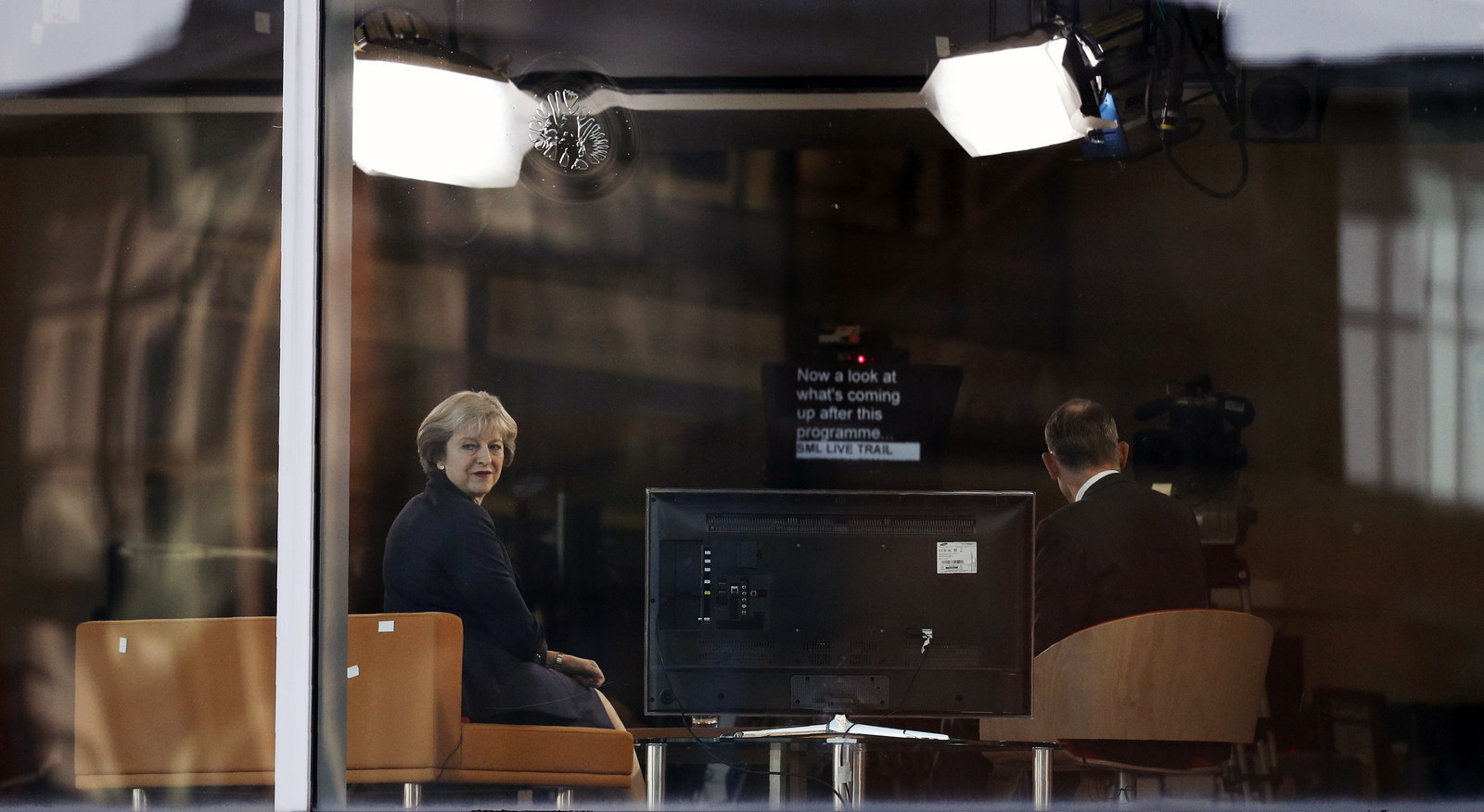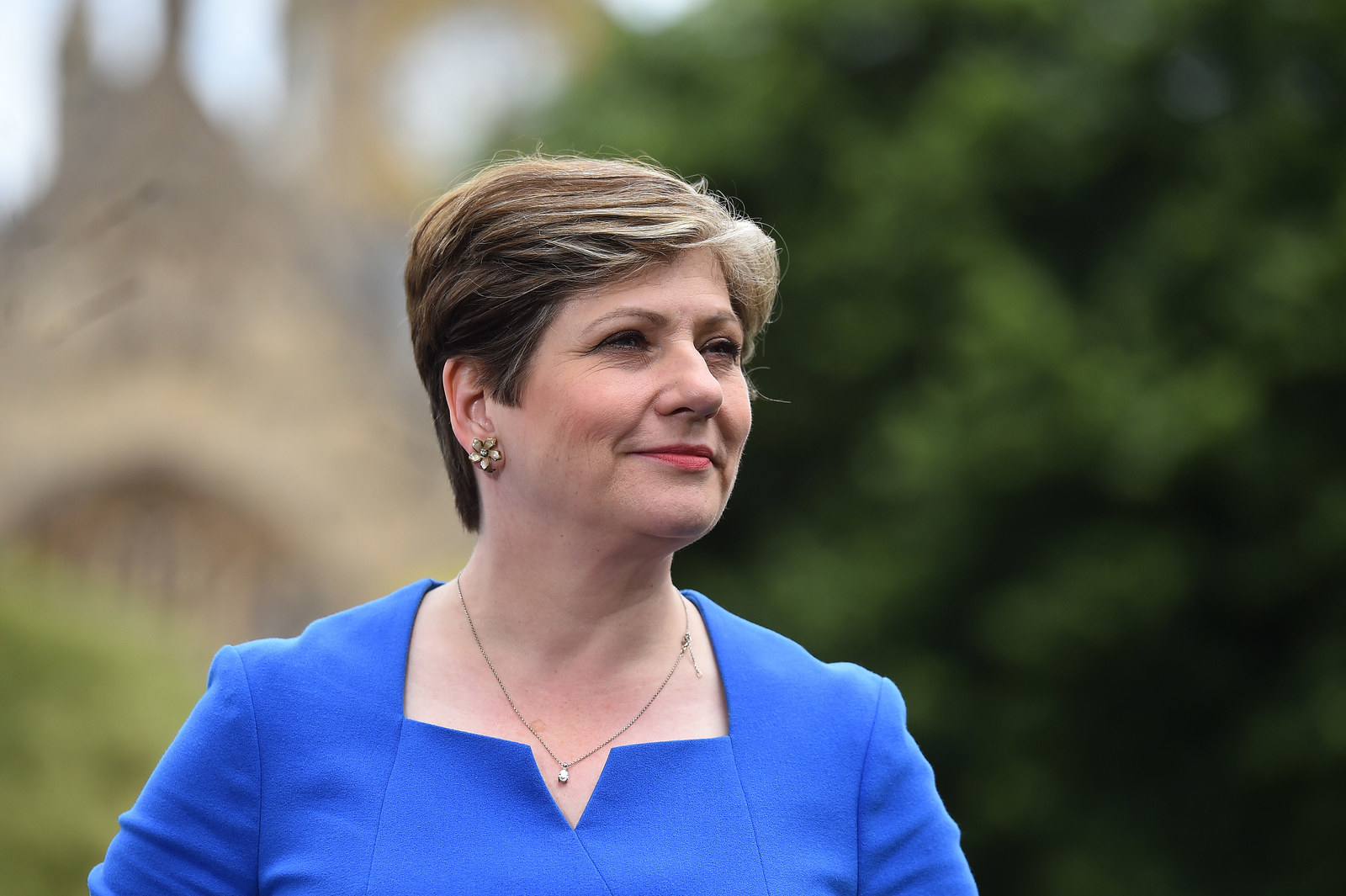
Britain will formally begin the process of leaving the European Union by March 2017, prime minister Theresa May has confirmed.
Speaking on BBC1's The Andrew Marr Show as the Conservative party conference opened in Birmingham on Sunday, May gave a specific deadline for the triggering of Article 50 of the Lisbon Treaty – the two-year formal process for a country leaving the EU – for the first time since the referendum.
"I will be saying in my speech today that we will trigger before the end of March next year," May, who will give a speech at conference on Sunday afternoon, told Marr.
"EU to decide process after UK triggers Article 50 before end of March 2017"- @theresa_may tells @AndrewMarr9 https://t.co/8MjcLkyik5
Once the formal request has been issued by the UK government, it will be for EU leaders to decide what the process of negotiations will be, May said.
In announcing her proposed deadline for the triggering of Article 50 now, May said there will be time for preparatory work from all parties involved, which she hoped would lead to a "smoother process of negotiation".
May said that while she was willing to announce key landmarks in the Brexit timeline, she did not plan to continue sharing details during the negotiation process.
"There’s a difference between not giving any commentary and giving a running commentary," she said.
"What I’m doing today is setting out some further detail on the timing and the way we’re going to approach this whole question, and of course the whole repeal bill.
"That will give people greater clarity."
President of the European Council, Donald Tusk, agreed. "PM May's declaration brings welcome clarity on start of Brexit talks," Tusk said in a tweet praising the announcement.
May emphasised her belief in the importance of the negotiations. "I want to get the right deal for the British people," she said.
"I think we owe it to people here in the UK in terms of their jobs, in terms of the protection of workers here in the UK," May continued. "I think we owe it to businesses, people who want to invest with the UK to ensure we get the right deal for trade in goods and services".
The prime minister was keen to point out that this meant striking a deal that worked for both the UK and the 27 EU member states.
"It’s important for our economy, it’s important for jobs here, it’s important for us to be able to continue to work with them on issues around dealing with crime and security," she said.
"It’s not just about what we want. It’s in our interest to have a strong EU to continue to trade with and they have an interest in being able to trade with us."

Leader of the Liberal Democrat party, Tim Farron, called May's timing of the announcement "absolute madness" and that "Britain is going to jump out of a plane without a parachute."
"Whether you are for or against Britain leaving the European Union, this is a decision that puts Britain completely on the back foot, puts all the cards in the hands of the other countries around Europe and is bad for British business," Farron told Sky News.
Farron accused May of "playing to the right wing, protectionalist and nationalist wing of her party," by announcing her Article 50 plans at conference.
Former Tory business minister Anna Soubry, a staunch Remain supporter, also said she was concerned by the announcement.
“This really concerns me, really troubles me,” she told ITV’s Peston on Sunday show, saying March 2017 came before the German and French elections that could see candidates campaigning to get the toughest deal possible for Britain.
“This idea that we hold the cards, and the idea that the EU will come to us and say ‘we’ll give you what you want,’ is rubbish. We don’t hold the cards, the EU does.”
Labour shadow foreign secretary Emily Thornberry said the announcement was "meaningless" without more clarity from May on how she plans to secure a strong Brexit deal, and what she plans to do if negotiations fail.

"This is exactly the same mistake David Cameron made with his proposed renegotiation last year: working to an artificial, self-imposed timetable; with a flawed Plan A of what he wanted to achieve; and no Plan B whatsoever," Thornberry said in a statement.
"Unless Theresa May starts spelling out the government’s plan on free trade, on free movement, on budget contributions, and a host of other issues, we will have to conclude she is only interested in achieving headlines not providing solutions.”
The announcement comes after May pledged to remove the European Communities Act 1972 from the statute book in the next Queen's Speech.
She said that all current European Union laws would be absorbed into British law, while the removal of any that seemed unnecessary would become an ongoing process.
When asked by Marr whether adopting European laws went against voters' desire to sever ties with the union, May emphasised that parliament would have the power to change these laws at will, but that initially retaining them would aid a "smooth transition".
"I think it’s important to bring that body of law into UK law because it’s that which protects workers rights and that’s very important," she said.
On Saturday, leading Brexit figure and former Tory cabinet minister Iain Duncan Smith laid out an “action plan for Brexit,” which seems to include enjoying the benefits of EU membership with none of the costs. Meanwhile, foreign secretary Boris Johnson told The Sun: "Our policy is having our cake and eating it."
In June, 52% of the British public who voted in the EU referendum opted to Leave, while 48% opted to Remain.
